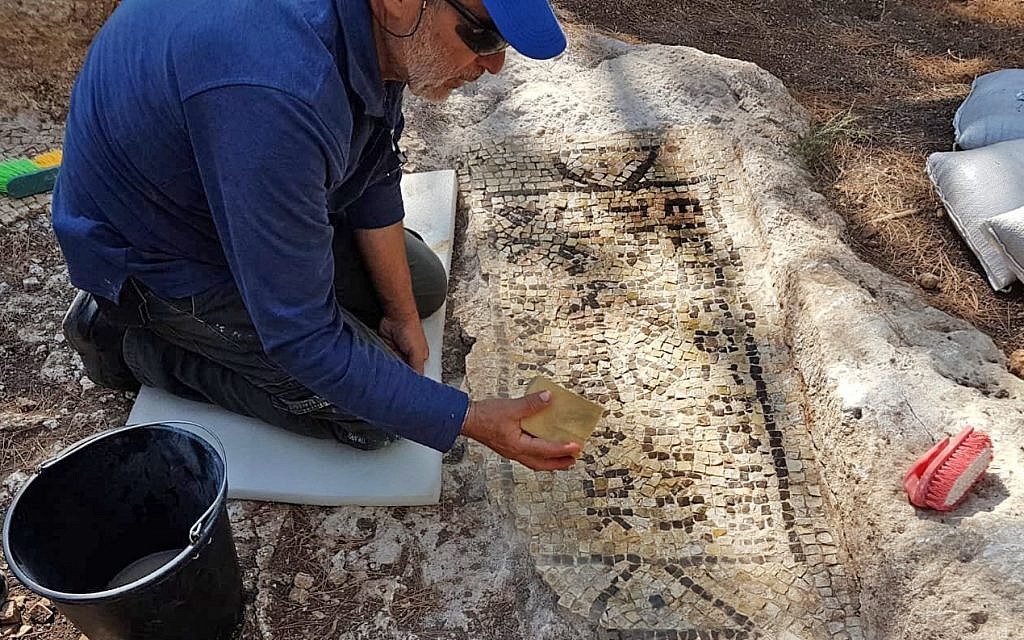A 1,600-year-old mosaic, bearing a rare Greek inscription, was discovered in an ancient Samaritan winepress in the southern Sharon plain in the center of Israel, with archaeologists suggesting it was probably part of the agricultural heritage of a wealthy Samaritan named Adios.

Leah Di Segni of the Hebrew University translated the Greek inscription in the structure’s mosaic floor that reads, “Only God help the beautiful property of Master Adios, amen.”
According to the Times of Israel, title “master” indicates that Adios had attained high social standing, said Hagit Torge of the Israel Antiquities Authority. The researchers also suggest Adios was a Samaritan, since Samaritan culture flourished in the region during the fifth century A.D., and an ancient Samaritan synagogue has been discovered nearby at Tel Zur Natan. Adios is thought to have made his fortune selling wine from the Holy Land to Christians living in the Byzantine Empire.
Previous excavations at the site have also uncovered an ancient Samaritan synagogue that was converted into a church in the 6th century, just after the height of the Samaritan settlement in the region.
“The inscription was discovered in an impressive winepress that was apparently part of the agricultural estate of a wealthy individual called Adios. This is only the second such winepress discovered in Israel with a blessing inscription associated with the Samaritans. The first was discovered a few years ago in Apollonia near Herzliya,” read the statement from the University.
Today there are only 2 small Samaritan communities worldwide - in Mount Gerizim in the West Bank, and in the city of Holon in the center of Israel.
*Source: timesofisrael.com
*Image: Galeb Abu Diab/Israel Antiquities Authority

